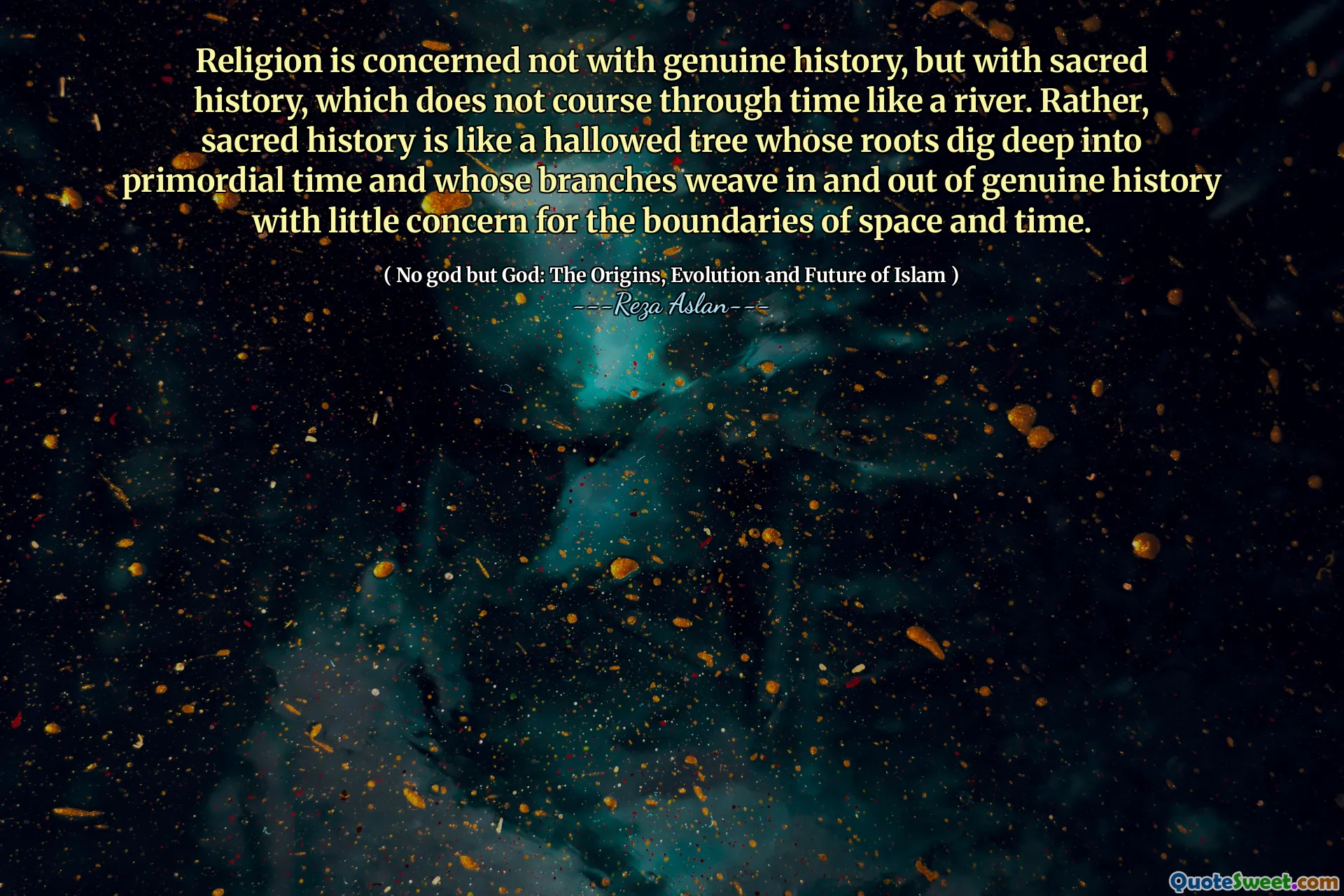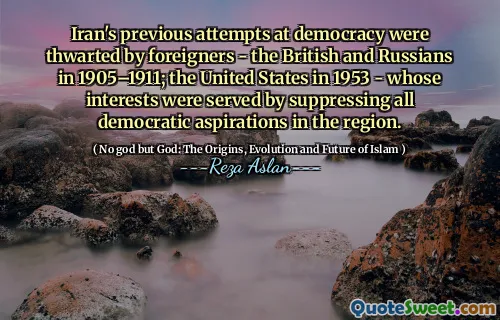
Religion is concerned not with genuine history, but with sacred history, which does not course through time like a river. Rather, sacred history is like a hallowed tree whose roots dig deep into primordial time and whose branches weave in and out of genuine history with little concern for the boundaries of space and time.
This quote highlights a profound distinction between what we often consider as objective, empirical history and the subjective, symbolic narratives that religions tend to emphasize. Sacred history, as described here, exists more as a cosmic tapestry rooted in primordial times, connecting ancient origins to present beliefs through metaphorical threads rather than sequential timelines. This perspective challenges the conventional view that history is strictly about factual events that can be chronologically verified. Instead, it suggests that religions often craft a mythic framework — like the roots of a sacred tree — where truths are embedded in their core, transcending mere chronological accuracy.
From a philosophical standpoint, this idea underscores the importance of understanding divine stories and sacred histories as symbols that serve to reveal moral, spiritual, or existential truths rather than strict historical accounts. The imagery of the roots going deep into primordial times points to a wisdom that predates and underlies current civilizations, while the branches weaving through genuine history illustrate how these sacred narratives influence cultural identities, rituals, and histories across generations.
Engaging with this concept invites us to consider the role of sacred history in shaping human understanding of the divine and our origins. It reminds us that religions often operate within a different epistemological framework, where allegory and myth carry as much weight as factual recounting. Recognizing this distinction can foster a more nuanced dialogue about faith, history, and the nature of truth itself.
This perspective also prompts reflection on the ways in which sacred stories are passed down and reinterpreted, shaping collective memory and identity over centuries. Whether or not one subscribes to particular religious beliefs, appreciating the symbolic and mythic dimensions of sacred history enriches our comprehension of how humans understand their history, purpose, and the divine.







